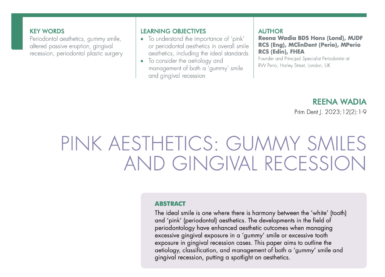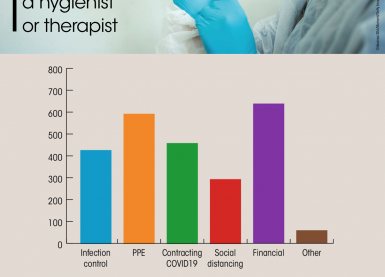Home/Articles
/ General Dental /
Reena’s Notes: 10 Key Points on the Peer Review Process for Scientific Papers by Professor Kenneth Eaton
December 3, 2015

- The best way to learn about writing papers is to understand the peer review process and critically appraise other papers.
- For scientific literature, peer review is a process of “quality” control, which involves independent review by at least two “experts”. They may be asked to complete a checklist as well as give general comments and a recommendation on whether or not the paper should be published.
- The peer reviewer gives impartial advice to the author and editor, detects deficiencies in the manuscript, cites literature to support comments and has sufficient knowledge in the subject they are reviewing. They are usually not paid for their work.
- All scientific journals publish instructions to authors that detail the style and structure of papers required. Always check these prior to writing and submitting.
- Before reading the paper, peer reviewers tend to look at the author’s background, the abstract and quality of the references.
- Examples of questions that the peer reviewer may go onto consider:
- Does the title accurately reflect the content of the paper?
- Does the paper have a logical construction?
- Does the length of the paper need adjusting?
- Is the paper written in a clear and easy to understand style?
- Is the paper free of grammatical or typographical errors?
- Is the introduction appropriate and has a null hypothesis been stated?
- Is the design of the study consistent with its aims?
- Are the results presented in an unambiguous manner?
- Does the discussion critique and discuss the methodology used?
- Do the conclusions accurately reflect the results of the study?
- There are number of guidelines for evaluating reports of different types of research e.g. Critical Appraisal Skills Programme (CASP), Consolidated Standards of Reporting Trials (CONSORT) and Strengthening the Reporting of Observational Studies in Epidemiology (STROBE).
- Ingram (2004) has adapted a staged approach to the critical reading and appraisal of research papers, which can be useful to use. The four stages are: preliminary understanding (skim reading), comprehensive understanding, analysis understanding (breaking into parts) and synthesis understanding.
- Examples of online databases of peer-reviewed papers include Medline and EMBASE.
- If you’re unsure if your paper is suitable for a specific journal or want to ask about a potential topic, it’s always worth contacting the editor first.



